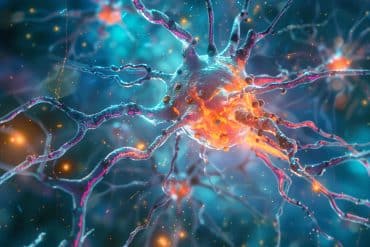Summary: A novel method offers a promising approach to enhancing grit and self-belief. Through a pilot study involving 38 Norwegian students, this method, encapsulated in a 35-40 minute online course named ‘I CAN’, demonstrated a significant increase in participants’ persistence and belief in their abilities to achieve goals.
The course aims to cultivate an ‘I can’ attitude and equip individuals with strategies to evoke this mindset in challenging situations. This intervention could potentially increase individuals’ willingness to embrace new challenges, find their passion, and succeed in various aspects of life, including academic performance.
Key Facts:
- Significant Improvement in Grit: Participants showed a notable increase in grit following the ‘I CAN’ online course, indicating the effectiveness of short interventions in changing attitudes toward personal capabilities.
- Strategies for Evoking Self-Belief: The course focuses on building an ‘I can’ attitude and providing strategies to recall this belief in demanding circumstances, aiming to strengthen brain networks associated with persistence.
- Broader Implications for Academic Success: Encouraging self-efficacy, especially among students from lower socioeconomic backgrounds, can lead to improved school performance and help mitigate academic disparities.
Source: NTNU
Do you sometimes feel like you just can’t be bothered? Would you like to have exercised more, learned a new language or taken more education, but you feel that everything is too much effort?
If so, you probably need more grit and belief in your ability to achieve things. A recent pilot study has sparked hope, and more research will show whether this new method can help more people.
The key is to tap into our hidden innate potential.

“We have developed a method that can help people develop greater persistence and belief in their ability to achieve their goals,” says Professor Hermundur Sigmundsson at the Norwegian University of Science and Technology (NTNU’s) Department of Psychology.
The key is to tap into our hidden innate potential.
Success depends on many factors
Professor Sigmundsson has been working for several years to find out what exactly enables people to perform at a high level and how they increase their performance. Many different factors come into play.
It is quite astounding that we can change our attitude in 35-40 minutes.
It is important to be really passionate about something, and your attitude really does make a difference. You have to believe that you will achieve your goals, i.e. believe in growth. Your chances of success also increase if most other aspects of your life are generally on track.
However, persistence or “grit” may affect whether you actually get started on something or see it through.
“I can do this”
An initial sample of 38 Norwegian students participated in a pilot trial, an exploratory study conducted by Sigmundsson in collaboration with Research Assistant Håvard Hauge.
- The researchers first gave the students a questionnaire to see how well they scored on several different factors that play a role in success, and mapped how good the students felt about themselves in general.
- The students then completed an online course lasting 35 to 40 minutes, which is aptly called ‘I CAN’. (See the fact box below.)
- Later, the students filled out the same questionnaire again to see if anything had changed.
“After the students had completed the online course, we saw a significant change in grit. It is quite astounding that we can change our attitude in 35-40 minutes,” says Professor Sigmundsson.
Creating an ‘I can’ attitude
For other factors, there was less change, if any. But willingness to make an effort improved.
“We try to create an ‘I can’ attitude, a belief that they really will succeed. We also want to equip students with strategies that can help them evoke this feeling when they later find themselves in situations where they need it,” says Professor Sigmundsson.
Evoking this feeling over and over again can in itself strengthen the networks in the brain needed to develop greater grit over time.
Stronger belief increases the chance of finding a passion
“When you believe that you really can achieve something and are willing to make the necessary effort, this can increase the likelihood of taking on new challenges. It can increase your courage and provide more opportunities to find what you are passionate about, and then help you develop this passion,” says Professor Sigmundsson.
Participants learn that success depends on personal effort and practice. Other research has found that purposeful practice is a key factor in managing to achieve something, i.e. that you practise doing exactly what you want to be good at.
Helping to smooth out differences
Other studies show that when young people are helped to believe that they can succeed, that they can actually do something, they often do better at school. This is especially true for pupils who come from environments with so-called ‘lower socioeconomic status’, i.e. families with low income or low-prestige jobs.
For example, a study from an upper secondary school in Uganda shows that girls in particular benefit from having female role models. These role models show them that it is actually possible to achieve something difficult. This can both help reduce academic gender differences and help the pupils who struggle the most with academic work.
Like flipping a switch
“When people develop stronger belief in themselves or ‘self-efficacy’, it is almost as if a switch is flipped,” says Professor Sigmundsson.
The course and results support previous studies that have shown the effects of short-term interventions, including a study by David S. Yeager et al. published in Nature in 2019.
The findings of this pilot project are very promising, but researchers still need to find out more.
They are therefore in the process of carrying out ‘I CAN’ on a much larger scale, this time with almost 1000 Year 10 pupils. The results from this latest study are not yet available.
About this self belief and psychology research news
Author: Nancy Bazilchuk
Source: NTNU
Contact: Nancy Bazilchuk – NTNU
Image: The image is credited to Neuroscience News
Original Research: Open access.
“I CAN Intervention to Increase Grit and Self-Efficacy: A Pilot Study” by Hermundur Sigmundsson et al. Brain Sciences
Abstract
I CAN Intervention to Increase Grit and Self-Efficacy: A Pilot Study
In recent years, there has been a growing interest in increasing motivational factors within the domain of psychology. Among these factors, Grit, Mindset, Self-Efficacy, and Well-Being (Flourishing) have been suggested to play an important role in individuals’ performance and Well-Being. Thus, cultivating these factors in the general population is important.
Previous interventions have displayed substantial effects in certain areas. However, these interventions have primarily been Mindset oriented.
This paper presents a novel intervention approach by also emphasizing the importance of brain development; the importance of stimuli for building a network in the brain; the importance of repetition for strengthening the network; and the importance of perseverance and deliberate practice for achievement.
The purpose of the current study was to examine the effects of a 35–40 min online intervention to increase the beliefs of ‘I CAN’ for 38 university students in Norway.
The mean age of the 38 participants was 22.55 (SD = 1.59) and they completed a pre-test assessment of the Grit-S Scale, Theories of Intelligence Scale (Mindset), General Self-Efficacy Scale, and Flourishing Scale (Well-Being).
This was followed up by the novel intervention and finally a post-test of the scales eight weeks later. The results showed an increase in Grit, Self-Efficacy, and Well-Being. However, only Grit displayed a significant increase.
We aimed at creating an intervention where the participants would “turn on the switch”, meaning that they develop stronger beliefs. These promising results warrant a further development of the intervention, and studies with a larger group.







